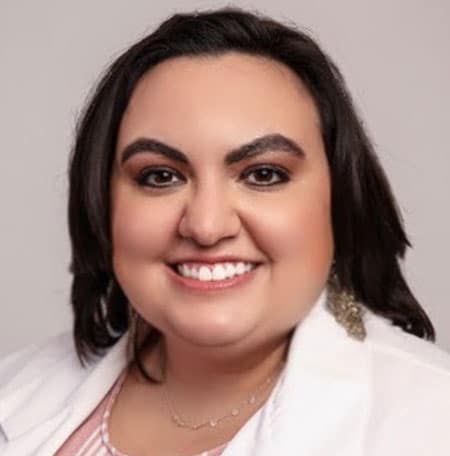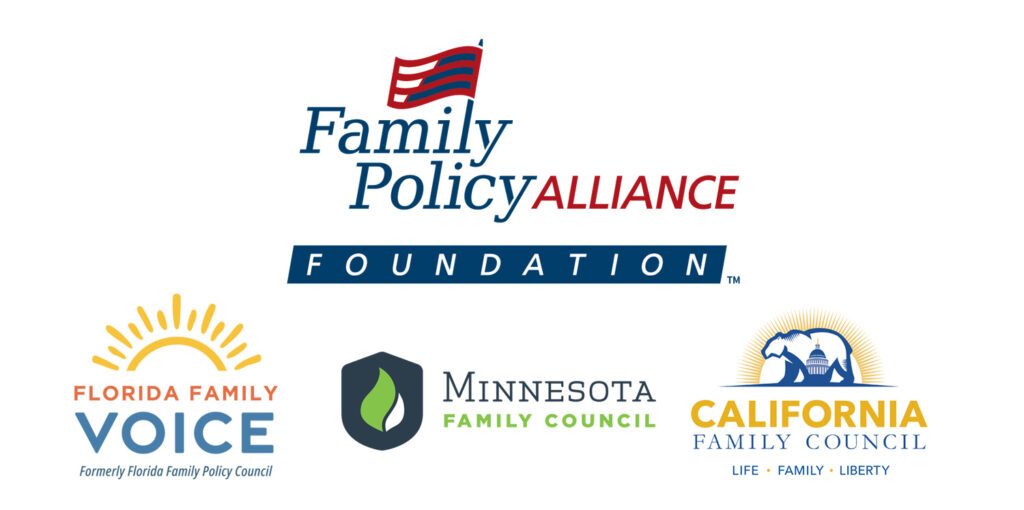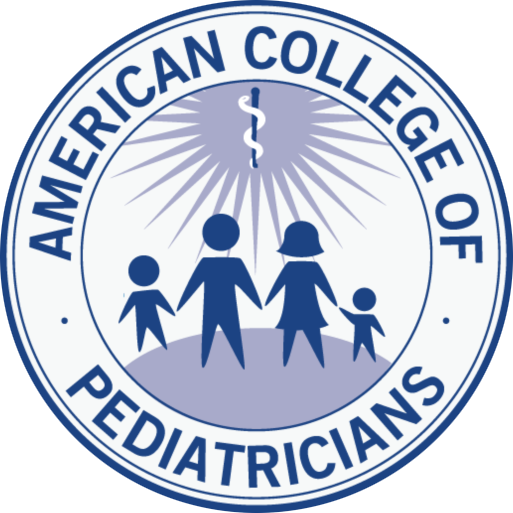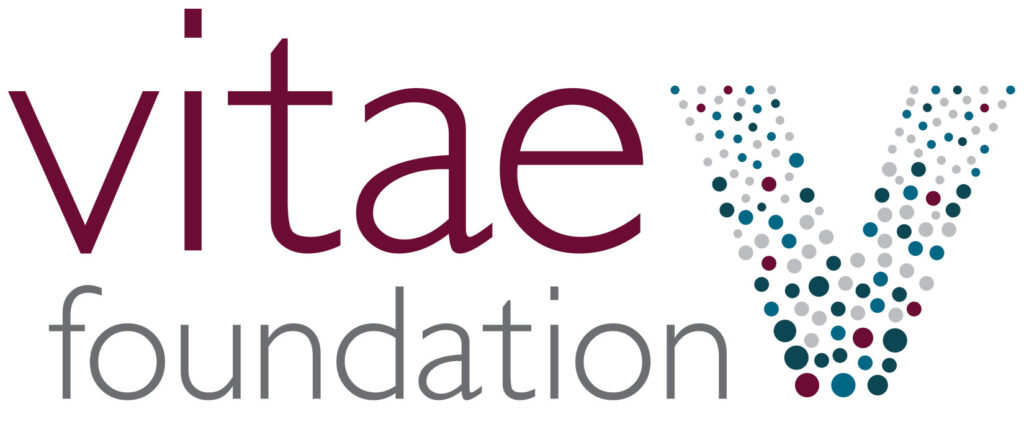



About the Conference
Our national medical education conference addresses topics related to life-affirming and pro-family medical practice, bioethics and legal updates that impact your practice. In addition to a review of the latest medical evidence related to these issues, attendees will have the opportunity to meet and interact with researchers, speakers, and fellow physicians who know the challenges our profession is facing and an give you the information that you need.

Venue
Sheraton Grand Seattle
The Renaissance Orlando at SeaWorld® has everything you love about Florida, all in one location. Our Orlando waterpark resort is within walking distance of SeaWorld® and all of Orlando’s most celebrated attractions are just a quick shuttle ride away.
MBEC attendees have a negotiated rate of $229 + $10 resort fee + tax (currently 12.5%). This is for a King or Double/Queen room.
New this year!
You will be able to select your hotel options and reserve your room during the registration process. **Please do not call the hotel or book via the hotel website as you will not receive the negotiated conference rate.
The property is only 13 miles from the Orlando airport. There is not a hotel airport shuttle, however Uber, Lyft and Taxis are readily available.
Continuing Medical Education (CME)
Ascension designates this Live Activity for a maximum of 12.25 AMA PRA Category 1 Credit(s)™. Physicians should claim only the credit commensurate with the extent of their participation in the activity.
This activity is awarded 12.25 ANCC contact hour(s).
Medical Students & Residents
Speakers

Biography
Dr. Susan Bane (aka DrPinkGlasses) is a 1987 graduate of Atlantic Christian College, now Barton College. She has practiced obstetrics and gynecology for 25 years, including in private practice at Greenville Obstetrics and Gynecology and serving as a clinical professor at the Brody School of Medicine at East Carolina University. She is the founder and CEO of PinkGlasses Consulting, providing health care consulting with a life-affirming vision and is currently the Regional Medical Director for four pregnancy centers in North Carolina, where she oversees the medical aspects of the Centers and sees patients with unintended pregnancies.
Dr. Bane completed a PhD in Kinesiology and her medical degree from the University of Illinois. She holds coaching certifications for health and wellness and emotional intelligence coaching. She completed the year-long certificate program in Theology and Health Care at Duke Divinity School in 2022.
Dr. Bane serves on the Medical Board for Care Net and Board of Directors for The American Association of Prolife Obstetricians and Gynecologists, AAPLOG, serving as the vice-chair and advocacy team leader, as well as the chair of Board of Directors for AAPLOG Action. She is a highly sought after speaker and has spoken about women’s health and life issues in many settings. Her writing has been published in national press, including Politico, The Daily Signal, the Federalist, RealClearPolitics, RealClearHealth, and Newsweek. She serves as a co-host of AAPLOG’s podcast Caring for Both: A Curbside consult.
Dr. Bane is involved in a variety of community activities, including St. Therese Catholic Church, and participates in autism advocacy work, as her youngest son, Maxwell, has autism. She has been married for 37 years to her husband, Art, and has three children: Archer, married to Virginia, and they have two daughters, Townshend and Berrigan, Riley, married to Titus, and they have one child (Huff) and Maxwell, who won’t be getting married, but will be keeping Dr. Bane and her husband company for years to come. She considers her family her greatest accomplishment.
Innovative models for being a pregnancy center medical director
Objectives
- Discuss the importance of sexual integrity leading to marriage in human history and relatedly how our society has been affected by the sexual revolution starting in the 1970s
- Define the biologically-based male and female sex differences in brain biochemistry and anatomy and how they complicate 21st-century relationships
- Describe the physiological traits that show that monogamy is the optimal relationship form for humans
Abstract
An unbiased appraisal of the research literature shows that a significant number of women do suffer negative psychological consequences of abortion. These risks should be included in the information disclosed by the physician during the consent process. Furthermore, these potential risks are among the reasons that the informed consent process for abortion should be consistent and comprehensive―and should allow time for the patient to consider her options carefully. As the U.S. Supreme Court acknowledged in Gonzales v. Carhart, “It seems unexceptionable to conclude some women come to regret their choice to abort the infant life they once created and sustained. Severe depression and loss of esteem can follow” (IV.A). As we will see, evidence from clinical and social science research supports this conclusion. Some women who obtain abortions subsequently suffer psychologically complex and distressing consequences, and in many of these cases, psychological harms are pronounced and measurable. Identifiable medical, psychological, and social factors in the patient’s history can also help predict which patients may be at elevated risk.

Biography
Dr. Kerri Brackney is a dual board-certified Obstetrician-Gynecologist and Maternal-Fetal Medicine specialist based in Memphis, Tennessee. She serves as an academic physician, training students, residents, and fellows while directing the Regional One Health Perinatal Infectious Disease Clinic. Dr. Brackney also contributes to statewide initiatives for improving maternal care through her roles on the Tennessee Initiative for Perinatal Quality Care and the Tennessee Perinatal Advisory Committee. Her clinical and research interests focus on fetal growth restriction, sickle cell disease, HIV in pregnancy, prenatal diagnosis, and addressing racial disparities in obstetrics.
Dr. Brackney earned her undergraduate degree from Bryan College in Dayton, TN, followed by medical school at the University of Maryland School of Medicine (2006). She completed her OB/GYN residency at Penn State Health (2010) and later pursued advanced training with a fellowship in Obstetric Ultrasound at the University of Tennessee Health Science Center (2019) and a Maternal-Fetal Medicine fellowship at Case Western Reserve University (2022).
Passionate about serving underserved populations, Dr. Brackney has provided obstetrical care through Christ Community Health Services in Memphis and volunteers with pregnancy resource centers interpreting obstetric ultrasounds. She is active in professional organizations such as the Christian Medical and Dental Association (CMDA) and AAPLOG, where she helps lead initiatives supporting pro-life obstetricians. Driven by her faith, Dr. Brackney is committed to both domestic and international missions and envisions a culture where abortion becomes unthinkable.
Can you really be a prolife MFM?
Objectives
- Discuss the importance of sexual integrity leading to marriage in human history and relatedly how our society has been affected by the sexual revolution starting in the 1970s
- Define the biologically-based male and female sex differences in brain biochemistry and anatomy and how they complicate 21st-century relationships
- Describe the physiological traits that show that monogamy is the optimal relationship form for humans
Abstract
An unbiased appraisal of the research literature shows that a significant number of women do suffer negative psychological consequences of abortion. These risks should be included in the information disclosed by the physician during the consent process. Furthermore, these potential risks are among the reasons that the informed consent process for abortion should be consistent and comprehensive―and should allow time for the patient to consider her options carefully. As the U.S. Supreme Court acknowledged in Gonzales v. Carhart, “It seems unexceptionable to conclude some women come to regret their choice to abort the infant life they once created and sustained. Severe depression and loss of esteem can follow” (IV.A). As we will see, evidence from clinical and social science research supports this conclusion. Some women who obtain abortions subsequently suffer psychologically complex and distressing consequences, and in many of these cases, psychological harms are pronounced and measurable. Identifiable medical, psychological, and social factors in the patient’s history can also help predict which patients may be at elevated risk.

Biography
Bio coming soon.
There and Back Again: The Road from Roe to Dobbs
Objectives
- Discuss the importance of sexual integrity leading to marriage in human history and relatedly how our society has been affected by the sexual revolution starting in the 1970s
- Define the biologically-based male and female sex differences in brain biochemistry and anatomy and how they complicate 21st-century relationships
- Describe the physiological traits that show that monogamy is the optimal relationship form for humans
Abstract
An unbiased appraisal of the research literature shows that a significant number of women do suffer negative psychological consequences of abortion. These risks should be included in the information disclosed by the physician during the consent process. Furthermore, these potential risks are among the reasons that the informed consent process for abortion should be consistent and comprehensive―and should allow time for the patient to consider her options carefully. As the U.S. Supreme Court acknowledged in Gonzales v. Carhart, “It seems unexceptionable to conclude some women come to regret their choice to abort the infant life they once created and sustained. Severe depression and loss of esteem can follow” (IV.A). As we will see, evidence from clinical and social science research supports this conclusion. Some women who obtain abortions subsequently suffer psychologically complex and distressing consequences, and in many of these cases, psychological harms are pronounced and measurable. Identifiable medical, psychological, and social factors in the patient’s history can also help predict which patients may be at elevated risk.

Biography
Dr. Chapa is a nationally and internationally recognized physician scientist in the field of Obstetrics and Gynecology. He is a graduate of UT Southwestern Medical School with specialty training at Parkland Hospital. He is a Board-Certified Obstetrician & Gynecologist and serves as clinical associate professor at Texas A&M College of Medicine in Bryan-College Station, Texas. Since 2016, he has served as the OBGYN Clerkship Director (BCS Campus). In 2018, he became director of interprofessional education. He is an inducted member of the Arnold P. Gold Humanism Honor Society. In 2020 Dr. Chapa was voted “Educator of the Year” by the School of Medicine BCS Campus and recently received the recognition of Distinguished Clinical Educator (2022). Nationally, he has served on the IPEC Core Competency revision working group (2022-2023), the AAMC Core Competency revision working group (2023), and has served (2022-2025) on the Obstetrical Care Consensus Committee for the ACOG, and as a National Board member for the ACOG (2024-2025). He has published over 45 clinical articles and commentaries. His podcast, Dr. Chapa’s Clinical Pearls has over 1000 episodes, and has gained a national and international following. He has served as an invited speaker in South Africa, Israel, the European Union, The Netherlands, Norway, Ireland, Chile, Columbia, and Canada due to his passion for evidence-based teaching. His current clinical appointment is at Common Spirit St. Joseph Hospital in College Station, Texas.
When OBGYN Fits in the Crosshairs of Sociopolitical Ideology*
The Ever-Evolving Saga of Antenatal Corticosteroids for Fetal Maturation
Objectives
- Discuss the importance of sexual integrity leading to marriage in human history and relatedly how our society has been affected by the sexual revolution starting in the 1970s
- Define the biologically-based male and female sex differences in brain biochemistry and anatomy and how they complicate 21st-century relationships
- Describe the physiological traits that show that monogamy is the optimal relationship form for humans
Abstract
An unbiased appraisal of the research literature shows that a significant number of women do suffer negative psychological consequences of abortion. These risks should be included in the information disclosed by the physician during the consent process. Furthermore, these potential risks are among the reasons that the informed consent process for abortion should be consistent and comprehensive―and should allow time for the patient to consider her options carefully. As the U.S. Supreme Court acknowledged in Gonzales v. Carhart, “It seems unexceptionable to conclude some women come to regret their choice to abort the infant life they once created and sustained. Severe depression and loss of esteem can follow” (IV.A). As we will see, evidence from clinical and social science research supports this conclusion. Some women who obtain abortions subsequently suffer psychologically complex and distressing consequences, and in many of these cases, psychological harms are pronounced and measurable. Identifiable medical, psychological, and social factors in the patient’s history can also help predict which patients may be at elevated risk.

Biography
Chupp, MD, Mike – is a US Board certified general surgeon who completed his BA degree at Taylor University in 1984, his MD degree at Indiana University in 1988 and then completed a five-year general surgery residency at Methodist Hospital of Indiana in 1993. He then joined Southwestern Medical Clinic in Berrien County, Michigan where he remained a partner in the practice through 2016. In 1996 Mike and his wife Pam began a 20-year career as medical missionaries at Tenwek Hospital in southwest Kenya. There he practiced general and orthopedic surgery and served as the Medical Director for many years. In the fall of 2016, Mike and Pam moved from Kenya to Bristol, Tennessee where he assumed the role of Executive VP of the Christian Medical & Dental Associations, the largest community of Christian healthcare professionals in the US with 13,000+ members. In September 2019 Mike was commissioned by the CMDA Board to become the Chief Executive Officer, the position he has held to the present time.
Being an advocate while in medical training
Objectives
- Discuss the importance of sexual integrity leading to marriage in human history and relatedly how our society has been affected by the sexual revolution starting in the 1970s
- Define the biologically-based male and female sex differences in brain biochemistry and anatomy and how they complicate 21st-century relationships
- Describe the physiological traits that show that monogamy is the optimal relationship form for humans
Abstract
An unbiased appraisal of the research literature shows that a significant number of women do suffer negative psychological consequences of abortion. These risks should be included in the information disclosed by the physician during the consent process. Furthermore, these potential risks are among the reasons that the informed consent process for abortion should be consistent and comprehensive―and should allow time for the patient to consider her options carefully. As the U.S. Supreme Court acknowledged in Gonzales v. Carhart, “It seems unexceptionable to conclude some women come to regret their choice to abort the infant life they once created and sustained. Severe depression and loss of esteem can follow” (IV.A). As we will see, evidence from clinical and social science research supports this conclusion. Some women who obtain abortions subsequently suffer psychologically complex and distressing consequences, and in many of these cases, psychological harms are pronounced and measurable. Identifiable medical, psychological, and social factors in the patient’s history can also help predict which patients may be at elevated risk.

Biography
Bio coming soon.
Prolife policy update*
Objectives
- Discuss the importance of sexual integrity leading to marriage in human history and relatedly how our society has been affected by the sexual revolution starting in the 1970s
- Define the biologically-based male and female sex differences in brain biochemistry and anatomy and how they complicate 21st-century relationships
- Describe the physiological traits that show that monogamy is the optimal relationship form for humans
Abstract
An unbiased appraisal of the research literature shows that a significant number of women do suffer negative psychological consequences of abortion. These risks should be included in the information disclosed by the physician during the consent process. Furthermore, these potential risks are among the reasons that the informed consent process for abortion should be consistent and comprehensive―and should allow time for the patient to consider her options carefully. As the U.S. Supreme Court acknowledged in Gonzales v. Carhart, “It seems unexceptionable to conclude some women come to regret their choice to abort the infant life they once created and sustained. Severe depression and loss of esteem can follow” (IV.A). As we will see, evidence from clinical and social science research supports this conclusion. Some women who obtain abortions subsequently suffer psychologically complex and distressing consequences, and in many of these cases, psychological harms are pronounced and measurable. Identifiable medical, psychological, and social factors in the patient’s history can also help predict which patients may be at elevated risk.

Biography
Dr. George Delgado is the president of Steno Institute, a nonprofit research institute established in 2018 with a goal of furthering research, education and awareness around abortion pill reversal. He was one of the pioneers of abortion pill reversal and established the Abortion Pill Reversal network. Dr. Delgado has authored or co-authored four articles in peer-reviewed medical journals regarding abortion pill reversal and mifepristone abortion.
He has been a member of the American Association of Pro-Life Obstetricians and Gynecologists board of directors since 2012. Dr. Delgado is a medical advisor to Heartbeat International, which operates the Abortion Pill Rescue Network.
He has authored a book titled: Abortion Pill Reversal: a Second Chance at Choice, for the general public that is set to be published in September 2025. Dr. Delgado was selected to receive the St. Gianna Molla Pro-Life Award at the 2017 Walk for Life West Coast. In April 2018, Heartbeat International awarded him a Servant Leader Award. Solidarity HealthShare granted him its Pro-Life Innovator Award in January 2019, on the eve of the March for Life in Washington, DC. In 2021, Heartbeat International granted him the Legacy Award. The Catholic Medical Association presented him with the Evangelium Vitae Award at its annual conference in 2021.
Dr. Delgado received his medical degree from UC Davis and completed his residency at Santa Monica Hospital/UCLA. He is board certified in family medicine and in hospice and palliative medicine. Dr. Delgado completed the one-year certification program in health care ethics offered by the National Catholic Bioethics Center.
Abortion Pill Reversal: The Current Science and Landscape
Objectives
- Discuss the importance of sexual integrity leading to marriage in human history and relatedly how our society has been affected by the sexual revolution starting in the 1970s
- Define the biologically-based male and female sex differences in brain biochemistry and anatomy and how they complicate 21st-century relationships
- Describe the physiological traits that show that monogamy is the optimal relationship form for humans
Abstract
An unbiased appraisal of the research literature shows that a significant number of women do suffer negative psychological consequences of abortion. These risks should be included in the information disclosed by the physician during the consent process. Furthermore, these potential risks are among the reasons that the informed consent process for abortion should be consistent and comprehensive―and should allow time for the patient to consider her options carefully. As the U.S. Supreme Court acknowledged in Gonzales v. Carhart, “It seems unexceptionable to conclude some women come to regret their choice to abort the infant life they once created and sustained. Severe depression and loss of esteem can follow” (IV.A). As we will see, evidence from clinical and social science research supports this conclusion. Some women who obtain abortions subsequently suffer psychologically complex and distressing consequences, and in many of these cases, psychological harms are pronounced and measurable. Identifiable medical, psychological, and social factors in the patient’s history can also help predict which patients may be at elevated risk.

Biography
Dr. Marguerite Duane, a board-certified family physician, is co-founder and Executive Director of FACTS about Fertility, an organization dedicated to educating medical professionals and students about the science supporting fertility awareness-based methods (FABMs) and restorative reproductive medicine (RRM). She serves as an Adjunct Associate Professor at Georgetown and Associate Professor of Restorative Reproductive Medicine and Director of the Center for Fertility Awareness Based Education and Research at Duquesne University’s College of Osteopathic Medicine. Dr. Duane cares for patients via a direct primary care house-calls based practice, MD for Life. She has served on the board of the American Academy of Family Physicians and the Family Medicine Education Consortium.
The Female Cycle as the Fifth Vital Sign
Objectives
- Discuss the importance of sexual integrity leading to marriage in human history and relatedly how our society has been affected by the sexual revolution starting in the 1970s
- Define the biologically-based male and female sex differences in brain biochemistry and anatomy and how they complicate 21st-century relationships
- Describe the physiological traits that show that monogamy is the optimal relationship form for humans
Abstract
An unbiased appraisal of the research literature shows that a significant number of women do suffer negative psychological consequences of abortion. These risks should be included in the information disclosed by the physician during the consent process. Furthermore, these potential risks are among the reasons that the informed consent process for abortion should be consistent and comprehensive―and should allow time for the patient to consider her options carefully. As the U.S. Supreme Court acknowledged in Gonzales v. Carhart, “It seems unexceptionable to conclude some women come to regret their choice to abort the infant life they once created and sustained. Severe depression and loss of esteem can follow” (IV.A). As we will see, evidence from clinical and social science research supports this conclusion. Some women who obtain abortions subsequently suffer psychologically complex and distressing consequences, and in many of these cases, psychological harms are pronounced and measurable. Identifiable medical, psychological, and social factors in the patient’s history can also help predict which patients may be at elevated risk.

Biography
Tabitha is the National Women’s Health Clinic Manager at Save the Storks. Before joining the national team, she served for nearly five years as the Executive Director of a pregnancy medical clinic, where she led the organization through significant growth in medical services and community impact. She also serves on Save the Storks’ Medical Advisory Board, helping guide best practices and medical innovation for pregnancy health clinics nationwide.
As a Registered Nurse with a strong background in clinic leadership and missions, Tabitha brings both clinical expertise and a deep heart for ministry to her role. At Save the Storks, she oversees medical initiatives that equip partner clinics to expand services, strengthen operations, and provide compassionate care to women.
Tabitha and her husband recently relocated to Utah to be closer to their two sons. She enjoys traveling, hiking, skiing, 80s pop music, and outdoor concerts. Tabitha is deeply committed to her faith in Christ and to advancing Save the Storks’ mission to reimagine the way pregnancy centers serve women and families.
Innovative models for being a pregnancy center medical director
Objectives
- Discuss the importance of sexual integrity leading to marriage in human history and relatedly how our society has been affected by the sexual revolution starting in the 1970s
- Define the biologically-based male and female sex differences in brain biochemistry and anatomy and how they complicate 21st-century relationships
- Describe the physiological traits that show that monogamy is the optimal relationship form for humans
Abstract
An unbiased appraisal of the research literature shows that a significant number of women do suffer negative psychological consequences of abortion. These risks should be included in the information disclosed by the physician during the consent process. Furthermore, these potential risks are among the reasons that the informed consent process for abortion should be consistent and comprehensive―and should allow time for the patient to consider her options carefully. As the U.S. Supreme Court acknowledged in Gonzales v. Carhart, “It seems unexceptionable to conclude some women come to regret their choice to abort the infant life they once created and sustained. Severe depression and loss of esteem can follow” (IV.A). As we will see, evidence from clinical and social science research supports this conclusion. Some women who obtain abortions subsequently suffer psychologically complex and distressing consequences, and in many of these cases, psychological harms are pronounced and measurable. Identifiable medical, psychological, and social factors in the patient’s history can also help predict which patients may be at elevated risk.

Biography
Katy Faust is Founder and President of Them Before Us, a global movement defending children’s right to their mother and father. She publishes, speaks and testifies widely on why marriage and family are matters of justice for children. Her articles have appeared in Newsweek, USA Today, The Federalist, Public Discourse, WORLD Magazine, The Daily Signal, the Washington Examiner, the American Mind, and the American Conservative. She is on the advisory board for the Alliance for Responsible Citizenship. Katy helped design the teen edition of CanaVox which studies sex, marriage and relationships from a natural law perspective. She detailed her philosophy of worldview transmission in her book, Raising Conservative Kids in a Woke City. Her third book, Pro-Child Politics was published September 2024. She and her husband are raising their four children in Seattle.
Surrogacy
Objectives
- Discuss the importance of sexual integrity leading to marriage in human history and relatedly how our society has been affected by the sexual revolution starting in the 1970s
- Define the biologically-based male and female sex differences in brain biochemistry and anatomy and how they complicate 21st-century relationships
- Describe the physiological traits that show that monogamy is the optimal relationship form for humans
Abstract
An unbiased appraisal of the research literature shows that a significant number of women do suffer negative psychological consequences of abortion. These risks should be included in the information disclosed by the physician during the consent process. Furthermore, these potential risks are among the reasons that the informed consent process for abortion should be consistent and comprehensive―and should allow time for the patient to consider her options carefully. As the U.S. Supreme Court acknowledged in Gonzales v. Carhart, “It seems unexceptionable to conclude some women come to regret their choice to abort the infant life they once created and sustained. Severe depression and loss of esteem can follow” (IV.A). As we will see, evidence from clinical and social science research supports this conclusion. Some women who obtain abortions subsequently suffer psychologically complex and distressing consequences, and in many of these cases, psychological harms are pronounced and measurable. Identifiable medical, psychological, and social factors in the patient’s history can also help predict which patients may be at elevated risk.

Biography
Dr. Christina Francis is a board-certified OB/GYN who currently works in Fort Wayne, IN as an OB/GYN Hospitalist. Dr. Francis completed medical school at Indiana University in 2005 and completed her OB/GYN residency at St. Vincent Hospital in Indianapolis, Indiana in 2009. She is CEO of the American Association of Pro-Life Obstetricians and Gynecologists, an associate scholar with the Charlotte Lozier Institute, a board member of Indiana Right to Life, and a physician member of the Abortion Pill Reversal Network. As a pro-life speaker, Dr. Francis offers her medical expertise, knowledge of bioethics, and pro-life reasoning both here in the U.S and around the globe. She has always had a passion for human rights, spending a significant portion of her life in various countries working tirelessly on behalf of women and children. Dr. Francis worked for three years as the only OB/GYN at a mission hospital in rural Kenya, until returning to the US in 2014 to work on behalf of women and children both in the US and internationally who are often victims of the abortion industry. She has written on issues surrounding women’s health and abortion for publications including the Wall Street Journal, Newsweek and USA Today.
The Time is Now: Speak Now or Forever Be Silenced*
Objectives
- Discuss the importance of sexual integrity leading to marriage in human history and relatedly how our society has been affected by the sexual revolution starting in the 1970s
- Define the biologically-based male and female sex differences in brain biochemistry and anatomy and how they complicate 21st-century relationships
- Describe the physiological traits that show that monogamy is the optimal relationship form for humans
Abstract
An unbiased appraisal of the research literature shows that a significant number of women do suffer negative psychological consequences of abortion. These risks should be included in the information disclosed by the physician during the consent process. Furthermore, these potential risks are among the reasons that the informed consent process for abortion should be consistent and comprehensive―and should allow time for the patient to consider her options carefully. As the U.S. Supreme Court acknowledged in Gonzales v. Carhart, “It seems unexceptionable to conclude some women come to regret their choice to abort the infant life they once created and sustained. Severe depression and loss of esteem can follow” (IV.A). As we will see, evidence from clinical and social science research supports this conclusion. Some women who obtain abortions subsequently suffer psychologically complex and distressing consequences, and in many of these cases, psychological harms are pronounced and measurable. Identifiable medical, psychological, and social factors in the patient’s history can also help predict which patients may be at elevated risk.

Biography
Robert P. George is McCormick Professor of Jurisprudence and Director of the James Madison Program in American Ideals and Institutions at Princeton University. He has frequently been a visiting professor at Harvard Law School, teaching philosophy of law and related subjects.
In addition to his academic service, Professor George has served as Chairman of the U.S. Commission on International Religious Freedom. He has also served on the President’s Council on Bioethics, as a presidential appointee to the United States Commission on Civil Rights, and as the U.S. member of UNESCO’s World Commission on the Ethics of Science and Technology. He currently chairs the New Jersey Advisory Committee of the U.S. Commission on Civil Rights.
He is a former Judicial Fellow at the Supreme Court of the United States, where he received the Justice Tom C. Clark Award.
He serves on the boards of the Lynde and Harry Bradley Foundation, the Ethics and Public Policy Center, the Becket Fund for Religious Liberty, the National Center on Sexual Exploitation, and the Center for Individual Rights, among others.
Professor George is author of Making Men Moral: Civil Liberties and Public Morality (Oxford University Press), In Defense of Natural Law (Oxford University Press), The Clash of Orthodoxies (ISI) and Conscience and Its Enemies (ISI). His most recent book, written with Cornel West, is Truth Matters: A Dialogue on Fruitful Disagreement in an Age of Division (Post Hill Press). His book Seeking Truth and Speaking Truth: Law and Morality in Our Cultural Moment will be published later this year by Encounter Books.
Professor George’s articles and review essays have appeared in the Harvard Law Review, the Yale Law Journal, the Columbia Law Review, the University of Chicago Law Review, the Review of Politics, the Review of Metaphysics, the American Journal of Jurisprudence, and Law and Philosophy. He has also written for the New York Times, the Wall Street Journal, the Washington Post, First Things, the Boston Review, and the Times Literary Supplement.
A graduate of Swarthmore College, Professor George holds MTS and JD degrees from Harvard University and the degrees of DPhil, BCL, DCL, and DLitt from Oxford University. He was elected to Phi Beta Kappa at Swarthmore and received a Frank Knox Fellowship from Harvard for graduate study in law and philosophy at Oxford. He holds twenty-three honorary degrees.
He is a recipient of the United States Presidential Citizens Medal, the Honorific Medal for the Defense of Human Rights of the Republic of Poland, the Bradley Prize for Intellectual and Civic Achievement, the Philip Merrill Award of the American Council of Trustees and Alumni, the Paul Bator Award of the Federalist Society for Law and Public Policy, the Sidney Hook Award of the National Association of Scholars, a Silver Gavel Award of the American Bar Association, the Irving Kristol Award of the American Enterprise Institute, the James Q. Wilson Award of the Association for the Study of Free Institutions, the Barry Prize of the American Academy of Sciences and Letters, the Paul Ramsey Award of the Center for Bioethics and Culture, and Princeton University’s President’s Award for Distinguished Teaching.
He has given the John Dewey Lecture in Philosophy of Law at Harvard, the Guido Calabresi Lecture in Law and Religion at Yale, the Elizabeth Anscombe Memorial Lecture in Bioethics at Oxford, the Sir Malcolm Knox Lecture in Philosophy at the University of St. Andrews in Scotland, and the Frank Irvine Lecture in Law at Cornell.
Professor George is general editor of New Forum Books, a Princeton University Press series of interdisciplinary works in law, culture, and politics. He is a member of the Council on Foreign Relations and is Of Counsel to the law firm of Robinson & McElwee.
Seeking Truth in the Age of Feeling
Objectives
- Discuss the importance of sexual integrity leading to marriage in human history and relatedly how our society has been affected by the sexual revolution starting in the 1970s
- Define the biologically-based male and female sex differences in brain biochemistry and anatomy and how they complicate 21st-century relationships
- Describe the physiological traits that show that monogamy is the optimal relationship form for humans
Abstract
An unbiased appraisal of the research literature shows that a significant number of women do suffer negative psychological consequences of abortion. These risks should be included in the information disclosed by the physician during the consent process. Furthermore, these potential risks are among the reasons that the informed consent process for abortion should be consistent and comprehensive―and should allow time for the patient to consider her options carefully. As the U.S. Supreme Court acknowledged in Gonzales v. Carhart, “It seems unexceptionable to conclude some women come to regret their choice to abort the infant life they once created and sustained. Severe depression and loss of esteem can follow” (IV.A). As we will see, evidence from clinical and social science research supports this conclusion. Some women who obtain abortions subsequently suffer psychologically complex and distressing consequences, and in many of these cases, psychological harms are pronounced and measurable. Identifiable medical, psychological, and social factors in the patient’s history can also help predict which patients may be at elevated risk.

Biography
Dr. Donna Harrison is a physician, board- certified in obstetrics and gynecology. She is currently serving as Director of Research for the American Association of Pro-Life Obstetricians and Gynecologists, the largest non-sectarian pro-life physician organization in the world, with over 7000 members across the United States, and associate members worldwide. Under her leadership as past CEO, AAPLOG doubled membership, launched the annual Matthew Bulfin Educational Conference, developed an up-to-date website and social media presence, and launched systematic outreaches to the medical, legal and policy communities to discuss the effects of abortion on women. Dr. Harrison also serves as Chair of the Alliance for Hippocratic Medicine.
Dr. Harrison’s research interests include Selective Progesterone Receptor Modulators, Endometrial Contraception, Maternal mortality, and Abortion Mortality and Morbidity. She has authored peer reviewed papers on the approval of RU-486 and on Ulipristal (Ella) as well as on the embryocidal potential of hormonal contraception. Dr. Harrison is a Continuing Medical Education Speaker in the United States and internationally on topics of Medical Abortion with Mifepristone and Misoprostol, Adverse Events associated with Mifepristone and Misoprostol, Emergency Contraception with Ulipristal, Maternal Mortality, and Abortion Morbidity.
She served for 10 years as an Adjunct Professor at Trinity International University in Deerfield, IL, teaching post graduate seminars at the annual Center for Bio Ethics and Human Dignity summer workshops. She is Associate Editor of the peer reviewed medical journal "Issues in Law and Medicine".
Dr. Harrison is married to Dr. Mark Harrison M.D, and is the mother of 5 children and 14 grandchildren.
Ethical Considerations in Ending a Pre-viable Pregnancy for Maternal-Fetal Vital Conflict
Objectives
- Discuss the importance of sexual integrity leading to marriage in human history and relatedly how our society has been affected by the sexual revolution starting in the 1970s
- Define the biologically-based male and female sex differences in brain biochemistry and anatomy and how they complicate 21st-century relationships
- Describe the physiological traits that show that monogamy is the optimal relationship form for humans
Abstract
An unbiased appraisal of the research literature shows that a significant number of women do suffer negative psychological consequences of abortion. These risks should be included in the information disclosed by the physician during the consent process. Furthermore, these potential risks are among the reasons that the informed consent process for abortion should be consistent and comprehensive―and should allow time for the patient to consider her options carefully. As the U.S. Supreme Court acknowledged in Gonzales v. Carhart, “It seems unexceptionable to conclude some women come to regret their choice to abort the infant life they once created and sustained. Severe depression and loss of esteem can follow” (IV.A). As we will see, evidence from clinical and social science research supports this conclusion. Some women who obtain abortions subsequently suffer psychologically complex and distressing consequences, and in many of these cases, psychological harms are pronounced and measurable. Identifiable medical, psychological, and social factors in the patient’s history can also help predict which patients may be at elevated risk.

Biography
Dr. Jim Heid is a board-certified Family Medicine physician working for Options360 - a life affirming nonprofit women's clinic. He is on the medical staff at Legacy Salmon Creek Medical Center, and PeaceHealth SW Washington Medical Center in Vancouver, Washington. He is a founding board member of the American College of Family Medicine (ACFM) and a member of the American Academy of Family Practice (AAFP). He is a Clinical Assistant Professor at the Elson S. Floyd College of Medicine, Washington State University, Spokane, Washington, and a clinical preceptor for physician assistant students at Northwest University. He received his bachelor’s degree from the University of California, San Diego; his MD from University of California, Davis; and completed residency at the St Joseph’s Hospital in Phoenix, Arizona.
Dr. Heid has 30 years of clinical experience and has served as chairman of family medicine section chair at Legacy Salmon Creek Medical Center. He has published an article in Ethics & Medicine on the ethical issues in treating transgender youth. (He has participated in several short-term missions to Haiti, Rwanda, Mexico, Honduras and Ecuador.)
Update on STIs
Objectives
- Discuss the importance of sexual integrity leading to marriage in human history and relatedly how our society has been affected by the sexual revolution starting in the 1970s
- Define the biologically-based male and female sex differences in brain biochemistry and anatomy and how they complicate 21st-century relationships
- Describe the physiological traits that show that monogamy is the optimal relationship form for humans
Abstract
An unbiased appraisal of the research literature shows that a significant number of women do suffer negative psychological consequences of abortion. These risks should be included in the information disclosed by the physician during the consent process. Furthermore, these potential risks are among the reasons that the informed consent process for abortion should be consistent and comprehensive―and should allow time for the patient to consider her options carefully. As the U.S. Supreme Court acknowledged in Gonzales v. Carhart, “It seems unexceptionable to conclude some women come to regret their choice to abort the infant life they once created and sustained. Severe depression and loss of esteem can follow” (IV.A). As we will see, evidence from clinical and social science research supports this conclusion. Some women who obtain abortions subsequently suffer psychologically complex and distressing consequences, and in many of these cases, psychological harms are pronounced and measurable. Identifiable medical, psychological, and social factors in the patient’s history can also help predict which patients may be at elevated risk.

Biography
Aaron Kheriaty, MD, is a physician specializing in psychiatry and author of over one hundred articles and five books, including the forthcoming, Making the Cut: How to Heal Modern Medicine. He is a Fellow & Director of the Program in Bioethics and American Democracy at the Ethics and Public Policy Center. For many years he was Professor of Psychiatry at UCI School of Medicine and Director of the Medical Ethics Program at UCI Health, where he chaired the ethics committee. Dr. Kheriaty has published articles in the Wall Street Journal, The Washington Post, Newsweek, The Federalist, Compact, Tablet, and First Things. On matters of public policy and healthcare he has testified at the California Senate and the United States Senate. Dr. Kheriaty is a plaintiff in the landmark free speech case Missouri v. Biden. For his work challenging government censorship, the journalist Matt Taibbi has called him “the most ambitious theorist of the censorship-industrial age.”
Abortion and Mental Health: What Can We Conclude?
Objectives
- Discuss the importance of sexual integrity leading to marriage in human history and relatedly how our society has been affected by the sexual revolution starting in the 1970s
- Define the biologically-based male and female sex differences in brain biochemistry and anatomy and how they complicate 21st-century relationships
- Describe the physiological traits that show that monogamy is the optimal relationship form for humans
Abstract
An unbiased appraisal of the research literature shows that a significant number of women do suffer negative psychological consequences of abortion. These risks should be included in the information disclosed by the physician during the consent process. Furthermore, these potential risks are among the reasons that the informed consent process for abortion should be consistent and comprehensive―and should allow time for the patient to consider her options carefully. As the U.S. Supreme Court acknowledged in Gonzales v. Carhart, “It seems unexceptionable to conclude some women come to regret their choice to abort the infant life they once created and sustained. Severe depression and loss of esteem can follow” (IV.A). As we will see, evidence from clinical and social science research supports this conclusion. Some women who obtain abortions subsequently suffer psychologically complex and distressing consequences, and in many of these cases, psychological harms are pronounced and measurable. Identifiable medical, psychological, and social factors in the patient’s history can also help predict which patients may be at elevated risk.

Biography
Lori Kuykendall is President of Beacon Health Education Resources. She earned a Bachelor of Science degree in Community Health from Texas A&M University and a Master of Public Health in Health Promotion from Liberty University. Lori has 30 years’ experience in community health education, focused on working with parents, schools, churches, and policymakers on sex education curriculum and policy. Her past roles include serving as director of LifeTalk Pregnancy Resource Center and the Medical Institute for Sexual Health. She led the national team that developed the “Universal Standards for Optimal Sexual Development.” Lori is currently working at the local, state and international level with the Colson Center for Christian Worldview, the Institute for Women’s Health, Family Policy Alliance, and Heartbeat International. She and her husband Chris have four young adult children and live in Flower Mound, Texas.
The Three-Generation Model: Promoting Parent Connection and Future Family Formation
Objectives
- Discuss the importance of sexual integrity leading to marriage in human history and relatedly how our society has been affected by the sexual revolution starting in the 1970s
- Define the biologically-based male and female sex differences in brain biochemistry and anatomy and how they complicate 21st-century relationships
- Describe the physiological traits that show that monogamy is the optimal relationship form for humans
Abstract
An unbiased appraisal of the research literature shows that a significant number of women do suffer negative psychological consequences of abortion. These risks should be included in the information disclosed by the physician during the consent process. Furthermore, these potential risks are among the reasons that the informed consent process for abortion should be consistent and comprehensive―and should allow time for the patient to consider her options carefully. As the U.S. Supreme Court acknowledged in Gonzales v. Carhart, “It seems unexceptionable to conclude some women come to regret their choice to abort the infant life they once created and sustained. Severe depression and loss of esteem can follow” (IV.A). As we will see, evidence from clinical and social science research supports this conclusion. Some women who obtain abortions subsequently suffer psychologically complex and distressing consequences, and in many of these cases, psychological harms are pronounced and measurable. Identifiable medical, psychological, and social factors in the patient’s history can also help predict which patients may be at elevated risk.

Biography
Tara Sander Lee, PhD is a scientist with over 25 years’ experience in public policy, academic research, and clinical medicine in the life sciences. She is a skilled speaker, writer, instructor, and science advisor dedicated to educating and promoting ethical healthcare advancements that protect the sanctity of human life from conception to natural death. She has contributed to medical journals and textbooks, offered scientific advice to legislators and policymakers, given testimony before the U.S. Congress, and participated in the U.S. Department of Health and Human Services Secretary’s Advisory Committee on Infant and Maternal Mortality. Dr. Sander Lee has been featured in opeds and interviewed by radio, television, and major media outlets such as Fox News, USA Today, Newsweek, Daily Wire, National Review, and CBN News. Her PhD in Biochemistry is from the Medical College of Wisconsin and fellowship training in Cell and Molecular Biology from Harvard Medical School. She was the Vice President and Director of Life Sciences for the Charlotte Lozier Institute, where she served as Senior Editor for the human development website VoyageOfLife.com. Before joining the Lozier Institute, she was an Associate Professor at the Medical College of Wisconsin, Scientific Director of Molecular Diagnostics at Children’s Hospital of Wisconsin, and Scientific Consultant with an emphasis on the cause of pediatric disease. Her recent efforts involve serving as a Science Advisor and Founding Board Member of Science Alliance for Life and Technology (SALT), a new collaboration among expert scientists resolved to guide the development of ethically sound and effective technologies and techniques. Dr. Sander Lee’s work is rooted in speaking the truth of how we are all “fearfully and wonderfully made” and created in the image of God.
Human Development and Advancements in Fetal Intervention
Objectives
- Discuss the importance of sexual integrity leading to marriage in human history and relatedly how our society has been affected by the sexual revolution starting in the 1970s
- Define the biologically-based male and female sex differences in brain biochemistry and anatomy and how they complicate 21st-century relationships
- Describe the physiological traits that show that monogamy is the optimal relationship form for humans
Abstract
An unbiased appraisal of the research literature shows that a significant number of women do suffer negative psychological consequences of abortion. These risks should be included in the information disclosed by the physician during the consent process. Furthermore, these potential risks are among the reasons that the informed consent process for abortion should be consistent and comprehensive―and should allow time for the patient to consider her options carefully. As the U.S. Supreme Court acknowledged in Gonzales v. Carhart, “It seems unexceptionable to conclude some women come to regret their choice to abort the infant life they once created and sustained. Severe depression and loss of esteem can follow” (IV.A). As we will see, evidence from clinical and social science research supports this conclusion. Some women who obtain abortions subsequently suffer psychologically complex and distressing consequences, and in many of these cases, psychological harms are pronounced and measurable. Identifiable medical, psychological, and social factors in the patient’s history can also help predict which patients may be at elevated risk.

Biography
Bio coming soon.
Legal conscience protections for medical professionals
Objectives
- Discuss the importance of sexual integrity leading to marriage in human history and relatedly how our society has been affected by the sexual revolution starting in the 1970s
- Define the biologically-based male and female sex differences in brain biochemistry and anatomy and how they complicate 21st-century relationships
- Describe the physiological traits that show that monogamy is the optimal relationship form for humans
Abstract
An unbiased appraisal of the research literature shows that a significant number of women do suffer negative psychological consequences of abortion. These risks should be included in the information disclosed by the physician during the consent process. Furthermore, these potential risks are among the reasons that the informed consent process for abortion should be consistent and comprehensive―and should allow time for the patient to consider her options carefully. As the U.S. Supreme Court acknowledged in Gonzales v. Carhart, “It seems unexceptionable to conclude some women come to regret their choice to abort the infant life they once created and sustained. Severe depression and loss of esteem can follow” (IV.A). As we will see, evidence from clinical and social science research supports this conclusion. Some women who obtain abortions subsequently suffer psychologically complex and distressing consequences, and in many of these cases, psychological harms are pronounced and measurable. Identifiable medical, psychological, and social factors in the patient’s history can also help predict which patients may be at elevated risk.

Biography
Dr. Calum Miller is a medical doctor and a research fellow at the University of Oxford, where he teaches philosophy and researches abortion policy from medical, ethical, legal and sociological perspectives. He graduated from the University of Oxford Medical School in 2015 and holds a master’s degree with distinction in Biblical studies.
Dr. Miller has published over 30 academic papers on topics including maternal mortality in the developing world, the empirical impact of abortion bans on women, the ethics of voting on abortion, animal and fetal pain, abortion and mental health, telemedicine abortion, academic freedom, and the philosophy of religion. He has received prizes from the University of Oxford and Royal College of Psychiatrists for his work on Bioethics.
Dr. Miller has presented to parliamentarians and governments across the world, including testifying for the Ecuadorian Justice Committee and speaking at the White House. He has given over 40 academic presentations internationally and has taken part in multiple debates, including several against the CEO of the UK’s largest private abortion provider BPAS. Dr. Miller regularly appears in mainstream media and on major podcasts including the BBC, Triggernometry, and the Tammy Peterson Podcast. He has been invited to speak to various professional groups including the Association of Obstetricians and Gynaecologists of Uganda, the Indonesian Association for Obstetrics and Gynaecology, and the Philippines Medical Association.
The Impact of Legalised Abortion on Maternal Mortality
A deeper dive into the evidence around public policy and its impact on abortion rates
Objectives
- Discuss the importance of sexual integrity leading to marriage in human history and relatedly how our society has been affected by the sexual revolution starting in the 1970s
- Define the biologically-based male and female sex differences in brain biochemistry and anatomy and how they complicate 21st-century relationships
- Describe the physiological traits that show that monogamy is the optimal relationship form for humans
Abstract
An unbiased appraisal of the research literature shows that a significant number of women do suffer negative psychological consequences of abortion. These risks should be included in the information disclosed by the physician during the consent process. Furthermore, these potential risks are among the reasons that the informed consent process for abortion should be consistent and comprehensive―and should allow time for the patient to consider her options carefully. As the U.S. Supreme Court acknowledged in Gonzales v. Carhart, “It seems unexceptionable to conclude some women come to regret their choice to abort the infant life they once created and sustained. Severe depression and loss of esteem can follow” (IV.A). As we will see, evidence from clinical and social science research supports this conclusion. Some women who obtain abortions subsequently suffer psychologically complex and distressing consequences, and in many of these cases, psychological harms are pronounced and measurable. Identifiable medical, psychological, and social factors in the patient’s history can also help predict which patients may be at elevated risk.

Biography
Tabitha G Moe, MD FACC is the director of the Adult Congenital Heart Disease program at Honor Health in Phoenix. She is an Associate Professor of Medicine at the University of Arizona– College of Medicine Phoenix. She serves as Associate Program Director for the Honor Health Cardiovascular Disease Fellowship. She is a 2001 graduate of William Jennings Bryan College in Dayton, TN with degrees in Biology, Spanish and Bible. She attended medical school, Internal Medicine Residency and completed an Internal Medicine Chief year at the University of Missouri – Kansas City. Cardiovascular Diseases Fellowship at Banner University Medical Center in Phoenix, AZ, and additional training in Adult Congenital Heart Disease at Phoenix Children’s Hospital. She is an ovarian cancer survivor, mother of four children, and avid exerciser. Current research interests include pregnancy in complex congenital heart disease, pulmonary hypertension in congenital heart disease, and primary prevention outcomes research in congenital heart disease.
Life Finds a Way: Single ventricle maternal circulation outcomes, challenges, and successes
Objectives
- Discuss the importance of sexual integrity leading to marriage in human history and relatedly how our society has been affected by the sexual revolution starting in the 1970s
- Define the biologically-based male and female sex differences in brain biochemistry and anatomy and how they complicate 21st-century relationships
- Describe the physiological traits that show that monogamy is the optimal relationship form for humans
Abstract
An unbiased appraisal of the research literature shows that a significant number of women do suffer negative psychological consequences of abortion. These risks should be included in the information disclosed by the physician during the consent process. Furthermore, these potential risks are among the reasons that the informed consent process for abortion should be consistent and comprehensive―and should allow time for the patient to consider her options carefully. As the U.S. Supreme Court acknowledged in Gonzales v. Carhart, “It seems unexceptionable to conclude some women come to regret their choice to abort the infant life they once created and sustained. Severe depression and loss of esteem can follow” (IV.A). As we will see, evidence from clinical and social science research supports this conclusion. Some women who obtain abortions subsequently suffer psychologically complex and distressing consequences, and in many of these cases, psychological harms are pronounced and measurable. Identifiable medical, psychological, and social factors in the patient’s history can also help predict which patients may be at elevated risk.

Biography
Throughout my nursing career, I have worked in a variety of roles. I graduated from nursing school in 1985 and worked as a staff nurse on a Neonatal Step-down Unit at Children's Hospital, Philadelphia. Several years later, I transitioned to begin graduate work in Nurse Midwifery and accepted a position working in Labor and Delivery at Hahnemann University Hospital in Philadelphia, PA. Upon completion of my Graduate studies, I obtained my MSN in Nurse Midwifery in 1993, I worked as a Certified Nurse Midwife offering full scope midwifery care at The Eliza Mahoney Women's Center, delivering babies at Misericordia Hospital in West Philadelphia. My husband’s teaching career led us to Kutztown, PA in 1996 and I returned to labor and delivery nursing. Then when I was expecting my first baby, I was offered an office position as a CNM at Comprehensive Women’s Services in Pottsville, PA from the fall of 1997 through December of 1999. Then, in June 2000, we moved to Chattanooga. My husband began working at Covenant College. With two little ones and eventually with the birth of two more children, I worked PRN and part time in labor and delivery at Parkridge East and then at Erlanger Health, inc. for the past 23 years. In 2006, I accepted a position in the NICU at Erlanger East. In 2020, when my children were 14,18, 20 and 22 I decided it was time to shift my focus back to what I am most passionate about: advocating for wholeness for women, and babies. Fast Forwarding to today, my children are ages 19. 21. 26 and 27. I continue to advocate for and to supporting the vulnerable first-time moms in our county.
Bridging the Gap: Enhancing Maternal & Neonatal Outcomes Through Physician-Midwife Collaboration
Objectives
- Discuss the importance of sexual integrity leading to marriage in human history and relatedly how our society has been affected by the sexual revolution starting in the 1970s
- Define the biologically-based male and female sex differences in brain biochemistry and anatomy and how they complicate 21st-century relationships
- Describe the physiological traits that show that monogamy is the optimal relationship form for humans
Abstract
An unbiased appraisal of the research literature shows that a significant number of women do suffer negative psychological consequences of abortion. These risks should be included in the information disclosed by the physician during the consent process. Furthermore, these potential risks are among the reasons that the informed consent process for abortion should be consistent and comprehensive―and should allow time for the patient to consider her options carefully. As the U.S. Supreme Court acknowledged in Gonzales v. Carhart, “It seems unexceptionable to conclude some women come to regret their choice to abort the infant life they once created and sustained. Severe depression and loss of esteem can follow” (IV.A). As we will see, evidence from clinical and social science research supports this conclusion. Some women who obtain abortions subsequently suffer psychologically complex and distressing consequences, and in many of these cases, psychological harms are pronounced and measurable. Identifiable medical, psychological, and social factors in the patient’s history can also help predict which patients may be at elevated risk.

Biography
David A. Prentice, Ph.D. is President and a Founding Member of the Science Alliance for Life and Technology (SALT), with almost 50 years’ experience as a scientific researcher, professor, academic leader and policy advisor. He is the former Advisory Board Chair and a Founding Member for the Midwest Stem Cell Therapy Center, a unique comprehensive adult stem cell center in Kansas that he was instrumental in creating. Dr. Prentice established Stem Cell Research Facts, an educational website about adult stem cells, and is an advisory board member for the Center for Bioethics and Human Dignity. He earned his Ph.D. in biochemistry from the University of Kansas. His previous service includes at Los Alamos National Laboratory, Professor of Life Sciences as well as Acting Associate Dean of Arts and Sciences at Indiana State University, Adjunct Professor of Medical and Molecular Genetics at Indiana University School of Medicine, Adjunct Professor of Molecular Genetics at the John Paul II Institute at The Catholic University of America, Senior Fellow and Director for Life Sciences at the Family Research Council, and Vice President and Research Director at the Charlotte Lozier Institute.
Dr. Prentice is an internationally-recognized expert on stem cell research, cell, molecular and developmental biology, and bioethics. He has received numerous awards including the Walter C. Randall Award in Biomedical Ethics from the American Physiological Society, given for promoting the honor and integrity of biomedical science through example and mentoring in the classroom and laboratory, and he was honored with selection for the 31st A. Kurt Weiss Lectureship on Biomedical Ethics, Oklahoma University Health Science Center. He has provided scientific lectures, policy briefings and legislative testimonies in 40 states and 21 countries, including before the U.S. House and Senate and numerous state legislatures, the U.S. National Academy of Sciences, the U.S. President’s Council on Bioethics, European Parliament, British Parliament, Canadian Parliament, Australian Parliament, German Bundestag, French Senate, Swedish Parliament, the United Nations, and the Vatican. In 2020, he was appointed by the Secretary of HHS to the federal Human Fetal Tissue Ethics Advisory Board.
Dr. Prentice has published numerous peer-reviewed scientific and bioethics articles, including a review of stem cell science and adult stem cell treatments, has reviewed for various professional publications and been interviewed in virtually all major media outlets. He has also published many public commentaries and op-eds, and travels nationally and internationally to give invited lectures and advise professionals, policymakers and the public regarding stem cell research, fetal tissue research, gene editing, cloning, embryology, cell, molecular and developmental biology, cell culture and vaccines, biochemistry, biotechnology, bioethics, and science policy.
A Review of the Latest Embryonic Biotechnologies
Objectives
- Discuss the importance of sexual integrity leading to marriage in human history and relatedly how our society has been affected by the sexual revolution starting in the 1970s
- Define the biologically-based male and female sex differences in brain biochemistry and anatomy and how they complicate 21st-century relationships
- Describe the physiological traits that show that monogamy is the optimal relationship form for humans
Abstract
An unbiased appraisal of the research literature shows that a significant number of women do suffer negative psychological consequences of abortion. These risks should be included in the information disclosed by the physician during the consent process. Furthermore, these potential risks are among the reasons that the informed consent process for abortion should be consistent and comprehensive―and should allow time for the patient to consider her options carefully. As the U.S. Supreme Court acknowledged in Gonzales v. Carhart, “It seems unexceptionable to conclude some women come to regret their choice to abort the infant life they once created and sustained. Severe depression and loss of esteem can follow” (IV.A). As we will see, evidence from clinical and social science research supports this conclusion. Some women who obtain abortions subsequently suffer psychologically complex and distressing consequences, and in many of these cases, psychological harms are pronounced and measurable. Identifiable medical, psychological, and social factors in the patient’s history can also help predict which patients may be at elevated risk.

Biography
Jana Schenkel is a Certified Nurse Midwife and Family Nurse Practitioner serving as the founder and lead clinician at Happy Stork Midwifery. With over a decade of experience in maternal health, Jana began her career at Hurley Hospital before transitioning to a smaller hospital setting and ultimately establishing her independent practice. She now provides full-scope maternity care, including home and birth center deliveries, primarily for the Plain community.
In 2024, Jana became a FEMM (Fertility Education & Medical Management) provider and earned her FNP certification in 2025, expanding her services to include primary care and Restorative Reproductive Medicine (RRM)-based infertility treatment. Her practice reflects a deep commitment to holistic, life-affirming care for women across the lifespan.
Having spent many years practicing outside the hospital system, Jana offers a unique perspective on the challenges of care collaboration between community-based and hospital-based providers. She is passionate about improving communication and continuity of care across these settings.
After feeling professionally displaced in traditional midwifery organizations, Jana is honored to have found a new home with AAPLOG, where she can continue her mission of delivering evidence-based, pro-life women’s healthcare.
Bridging the Gap: Enhancing Maternal & Neonatal Outcomes Through Physician-Midwife Collaboration
Objectives
- Discuss the importance of sexual integrity leading to marriage in human history and relatedly how our society has been affected by the sexual revolution starting in the 1970s
- Define the biologically-based male and female sex differences in brain biochemistry and anatomy and how they complicate 21st-century relationships
- Describe the physiological traits that show that monogamy is the optimal relationship form for humans
Abstract
An unbiased appraisal of the research literature shows that a significant number of women do suffer negative psychological consequences of abortion. These risks should be included in the information disclosed by the physician during the consent process. Furthermore, these potential risks are among the reasons that the informed consent process for abortion should be consistent and comprehensive―and should allow time for the patient to consider her options carefully. As the U.S. Supreme Court acknowledged in Gonzales v. Carhart, “It seems unexceptionable to conclude some women come to regret their choice to abort the infant life they once created and sustained. Severe depression and loss of esteem can follow” (IV.A). As we will see, evidence from clinical and social science research supports this conclusion. Some women who obtain abortions subsequently suffer psychologically complex and distressing consequences, and in many of these cases, psychological harms are pronounced and measurable. Identifiable medical, psychological, and social factors in the patient’s history can also help predict which patients may be at elevated risk.

Biography
Anita Showalter, DO, FACOOG (Dist) serves Duquesne University College of Osteopathic Medicine (DUQCOM) as Chair of Specialty Medicine, and Division Chief and Professor of OBGYN. In this role she also oversees the operations of the Center for Fertility Awareness Education and Research. She is a graduate of Ohio University Heritage College of Osteopathic Medicine (OU-HCOM) and completed her residency in OBGYN at Cuyahoga Falls General Hospital in Cuyahoga Falls, Ohio. She received a Master of Art in Bioethics from Trinity University in Deerfield, Illinois in 2020. Dr. Showalter has over 25 years of clinical experience in women’s health and over 17 years of experience in academic medicine. She was part of the founding faculty for Pacific Northwest University of Health Sciences in Yakima, Washington and DUQCOM. Her leadership roles have included the Board of Directors of the National Board of Osteopathic Medical Examiners (NBOME), the Board of Trustees of the American College of Osteopathic Obstetricians and Gynecologists (ACOOG) where she was named Distinguished Fellow and received the Distinguished Service Award, and has served on several committees of the American Osteopathic Association. She has had leadership roles in the Washington Osteopathic Medical Association and the Yakima (WA) County Medical Society, and is currently a member of the Pennsylvania Osteopathic Medical Association. Her focus of medical practice includes a holistic osteopathic approach to women’s health care.
Reproductive Life Planning
Objectives
- Discuss the importance of sexual integrity leading to marriage in human history and relatedly how our society has been affected by the sexual revolution starting in the 1970s
- Define the biologically-based male and female sex differences in brain biochemistry and anatomy and how they complicate 21st-century relationships
- Describe the physiological traits that show that monogamy is the optimal relationship form for humans
Abstract
An unbiased appraisal of the research literature shows that a significant number of women do suffer negative psychological consequences of abortion. These risks should be included in the information disclosed by the physician during the consent process. Furthermore, these potential risks are among the reasons that the informed consent process for abortion should be consistent and comprehensive―and should allow time for the patient to consider her options carefully. As the U.S. Supreme Court acknowledged in Gonzales v. Carhart, “It seems unexceptionable to conclude some women come to regret their choice to abort the infant life they once created and sustained. Severe depression and loss of esteem can follow” (IV.A). As we will see, evidence from clinical and social science research supports this conclusion. Some women who obtain abortions subsequently suffer psychologically complex and distressing consequences, and in many of these cases, psychological harms are pronounced and measurable. Identifiable medical, psychological, and social factors in the patient’s history can also help predict which patients may be at elevated risk.

Biography
Monica Snyder is a pro-life atheist and the Executive Director of Secular Pro-Life, a single-issue anti-abortion organization focused on advancing secular arguments against abortion and coalition building. Monica has degrees from California universities (BS in chemical biology from UC Berkeley, MS in forensic science from UC Davis) and has lived much of her adult life in secular, urban parts of California surrounded by pro-choice peers. She is passionate about fostering friendships across ideological lines, and training pro-life advocates to have useful conversations about abortion in the context of interpersonal relationships with pro-choice people.
Building Bridges: Strategies for useful conversations with pro-choice friends and colleagues
Objectives
- Discuss the importance of sexual integrity leading to marriage in human history and relatedly how our society has been affected by the sexual revolution starting in the 1970s
- Define the biologically-based male and female sex differences in brain biochemistry and anatomy and how they complicate 21st-century relationships
- Describe the physiological traits that show that monogamy is the optimal relationship form for humans
Abstract
An unbiased appraisal of the research literature shows that a significant number of women do suffer negative psychological consequences of abortion. These risks should be included in the information disclosed by the physician during the consent process. Furthermore, these potential risks are among the reasons that the informed consent process for abortion should be consistent and comprehensive―and should allow time for the patient to consider her options carefully. As the U.S. Supreme Court acknowledged in Gonzales v. Carhart, “It seems unexceptionable to conclude some women come to regret their choice to abort the infant life they once created and sustained. Severe depression and loss of esteem can follow” (IV.A). As we will see, evidence from clinical and social science research supports this conclusion. Some women who obtain abortions subsequently suffer psychologically complex and distressing consequences, and in many of these cases, psychological harms are pronounced and measurable. Identifiable medical, psychological, and social factors in the patient’s history can also help predict which patients may be at elevated risk.

Biography
Richard Weikart is an emeritus professor of history at California State University, Stanislaus. He is the author of eight books, including The Death of Humanity: And the Case for Life and Unnatural Death: Medicine’s Descent from Healing to Killing. He has been interviewed for many documentaries, TV and radio shows, and podcasts, and has lectured in many venues in the US, Europe, and Africa (some of these are available on youtube). He is a board member of a local pregnancy help center.
Unnatural Death: A History and Critique of Euthanasia and Assisted Suicide
Objectives
- Discuss the importance of sexual integrity leading to marriage in human history and relatedly how our society has been affected by the sexual revolution starting in the 1970s
- Define the biologically-based male and female sex differences in brain biochemistry and anatomy and how they complicate 21st-century relationships
- Describe the physiological traits that show that monogamy is the optimal relationship form for humans
Abstract
An unbiased appraisal of the research literature shows that a significant number of women do suffer negative psychological consequences of abortion. These risks should be included in the information disclosed by the physician during the consent process. Furthermore, these potential risks are among the reasons that the informed consent process for abortion should be consistent and comprehensive―and should allow time for the patient to consider her options carefully. As the U.S. Supreme Court acknowledged in Gonzales v. Carhart, “It seems unexceptionable to conclude some women come to regret their choice to abort the infant life they once created and sustained. Severe depression and loss of esteem can follow” (IV.A). As we will see, evidence from clinical and social science research supports this conclusion. Some women who obtain abortions subsequently suffer psychologically complex and distressing consequences, and in many of these cases, psychological harms are pronounced and measurable. Identifiable medical, psychological, and social factors in the patient’s history can also help predict which patients may be at elevated risk.

Biography
Patrick Yeung Jr. MD is a Board-Certified Obstetrician-Gynecologist, and founder of RESTORE Center for Endometriosis LLC which offers root cause treatment for pain and fertility. He is an Adjunct Professor at Saint Louis University. Dr. Yeung has dedicated his career to helping women with endometriosis, for over 15 years and over 4,000 surgeries. Dr. Yeung specializes in the optimal laser excision (LAPEX) of endometriosis.
Dr. Yeung completed a Fellowship in Minimally Invasive Gynecologic Surgery (FMIGS) at the University of Louisville and a mini-Fellowship in laser excision (LAPEX) at the Center for Endometriosis Care (CEC) in Atlanta. Dr. Yeung has always desired to combine the best of minimally invasive optimal laser excision surgery (LAPEX) for endometriosis with the best strategies for adhesion prevention, for best outcomes.
Dr. Yeung is a member of the World Endometriosis Research Foundation (WERF), the American Academy of FertilityCare Professionals (AAFCP), and the International Institute for Restorative Reproductive Medicine (IIRRM). Dr. Yeung has authored multiple landmark, peer-reviewed publications, including a landmark culmination manuscript showing a very low rate of repeat surgery in 10 years, demonstrating the possibility of one-and-done surgery for endometriosis. He has been invited to speak nationally and internationally, and has been voted one of Best Doctors annually since 2013.
Dr. Yeung has a true heart for women with endometriosis-associated infertility and pain, and tells patients that we are ‘all in this together’. He and his wife Dorothy struggled with infertility and endometriosis for 4 years. She is now pain-free and has had recurring fertility. Dr. Yeung started RESTORE Center for Endometriosis, the only Center dedicated to treating endometriosis that does not offer nor refer for IVF, to pay it forward.
Dr. Yeung believes good ethics is good medicine, has a passion for restorative reproductive surgery, and strongly believes in the connection between wellness and fertility.
Restorative Reproductive Medicine and Root Cause Treatment for Fertility Instead of IVF: Its Time Has Come
Objectives
- Discuss the importance of sexual integrity leading to marriage in human history and relatedly how our society has been affected by the sexual revolution starting in the 1970s
- Define the biologically-based male and female sex differences in brain biochemistry and anatomy and how they complicate 21st-century relationships
- Describe the physiological traits that show that monogamy is the optimal relationship form for humans
Abstract
An unbiased appraisal of the research literature shows that a significant number of women do suffer negative psychological consequences of abortion. These risks should be included in the information disclosed by the physician during the consent process. Furthermore, these potential risks are among the reasons that the informed consent process for abortion should be consistent and comprehensive―and should allow time for the patient to consider her options carefully. As the U.S. Supreme Court acknowledged in Gonzales v. Carhart, “It seems unexceptionable to conclude some women come to regret their choice to abort the infant life they once created and sustained. Severe depression and loss of esteem can follow” (IV.A). As we will see, evidence from clinical and social science research supports this conclusion. Some women who obtain abortions subsequently suffer psychologically complex and distressing consequences, and in many of these cases, psychological harms are pronounced and measurable. Identifiable medical, psychological, and social factors in the patient’s history can also help predict which patients may be at elevated risk.
*No CME credit available for this presentation
Pre-Conference Events
Medical Voices Masterclass
Class is full - Join Waitlist Here
AAPLOG offers two professional development programs designed to help medical professionals contribute their expertise outside of a healthcare setting. These free single-session courses are held multiple times throughout the year, both at in-person locations across the country and virtually, usually on the same day and at the same venue, so you can choose to sign up for both training sessions in a single day if you are interested and available.
Here is more information about these courses.
Life-Affirming Medical Voices Training
Science-Based Communication for Tough Conversations in Every Situation
4 hours
At this training, national media & policy experts will equip you with the practical tools to utilize your medical training and expertise to defend life-affirming medicine in any setting. From interviews with journalists to testimony before state legislatures to conversations with colleagues who disagree — when they ask, you’ll have the facts. You’ll be able to make the case, back it with science, and speak it anywhere.
Legal Training
4 hours
Led by national legal experts, our legal training program equips medical professionals with the skills to successfully navigate a deposition and deliver clear, confident, and credible testimony. Master this process and present your expertise with authority and clarity.
You will be asked to submit your CV/resume.
The Foundational FACTS of the Female Cycle
Master the facts about the fifth vital sign – the female cycle – in this timely workshop led by Dr. Marguerite Duane and leading experts in fertility awareness-based methods and restorative reproductive medicine. Learn how cycle charts can be used as diagnostic tools. Become a first trimester care expert. Engage in small group case studies discussing common concerns in women’s health.
Lunch will not be provided.
Ready, Set, Go: Facilitating Obstetrical Training in Africa through the Safe Passages Program
Safe Passages is a participatory, simulation-based training program addressing the leading causes of maternal and perinatal mortality and severe morbidity in Africa including postpartum hemorrhage, hypertensive disorders of pregnancy, sepsis and infection, obstructed labor, newborn asphyxia and neonatal sepsis.
The workshop will help prepare medical volunteers interested in facilitating obstetrical training in hospitals and health centers in Africa. Training and management protocols are contextualized to the resource limitations that often exist in rural hospitals and health centers in Africa.
Upon completion of the workshop, participants should be better prepared to facilitate training workshops for physicians, midwives and nurses using a participatory approach, simulation models and a life-affirming ethos consistent with African religious and cultural values.

Research Bootcamp
-
The nuts and bolts of analyzing a research article.
-
The basics of common statistical tools and methods.
-
The importance of pro-life voices in peer review and how to get started.
-
Real time to practice newly learned skills.
Networking Reception with Cash Bar
Schedule
Conference Begins
8:30 AM
Lunch
12:45 PM
Sessions End (Dinner on Your Own)
6:30 PM
Sessions Begin
8:30 AM
Lunch / Residency Fair
12:00 PM
Sessions End for the Day
9:30 PM
Catholic Mass and Protestant Service
7:30 AM – 8:30 AM
Coffee
8:30 AM – 9:00 AM
Sessions Start
9:00 AM
Closing Remarks
10:50 AM – 11:00 AM
What have others said about our conference?







All sessions will be held at The Sheraton Grand Seattle. Please refer to the Venue section for further information. The conference rate is $219 (King or Double) + 15.7% tax + 2.3% per room per night tourism tax (current rates as of this post). Please reserve your room during the registration process to get the conference rate.
Parking information:
There is valet parking ($78) available at the hotel and nearby cheaper garages downtown. The hotel has an agreement with the U.S. Bank Center Garage (1465 6th Ave., across the street) for hotel guests ($45/24 hrs. with some in/out privileges). There are multiple parking garages close by for $17-$19 all day rates with the “early bird” discount (in before 9:30am).
Your conference registration fee includes the following meals and breaks: Thursday night reception (cash bar), Friday lunch and afternoon snack; Saturday morning snack, lunch, cocktail reception (cash bar), and dinner. There will be coffee, tea, and water available throughout Friday and Saturday, and on Sunday morning.
Medical students and residents are encouraged to attend. We have a DeCook scholarship program that covers most of the conference and travel costs for students who apply and are accepted. There is also a special registration rate for non-scholarship students/residents.
We are currently raising funds to help reach our goal of bringing 100 medical students and residents to the conference through our scholarship program. You can help make this a reality and change the future of medicine by donating here for our scholarships.
The Sheraton Grand is 13.7 miles from the Seattle-Tacoma, WA airport (SEATAC). The hotel does not offer an airport shuttle; however, taxis, Uber, and Lyft are readily available. The hotel is also near the Westlake subway Station.
The conference is closed to the media.
If you need to cancel your registration, please email LBaesel@helmsbriscoe.com.
If you decide to completely cancel your conference registration, we will refund your conference fee if you notify us by February 2, 2026.
If you completely cancel your registration after February 2 to February 17, 2026, we will issue a refund for half of the conference fee.
If you completely cancel your registration after February 17, 2026, then we cannot refund your conference fee because we will have incurred costs related to the conference.
We welcome sponsors and exhibitors to join us. Please see Sponsor tab on this site and the booklet for more details. Thank you for your sponsorship!
AAPLOG is working with PRÆLIO, a professional security and risk management firm, to plan and oversee security for the conference. Professional security will be present during conference sessions and key events to ensure attendee safety, protect privacy, and prevent disruption. All conference spaces are private, access limited to credentialed attendees, and policies regarding access, conduct, and safety will be actively enforced.
Registrants check in will begin Fri, Feb. 10 at 9am through 5pm.
We will use the Cvent event app (optional) and send details to all registrants a week before the conference. Throughout the conference, you can use the app to find the updated schedule and the following:
- Real-time reminders and announcements about conference programming
- Profiles of exhibitors, sponsors, and fellow attendees, as well as a chat feature allowing you to connect with them
- Polling
- A discussion forum allowing you to share thoughts with all conference attendees
- And more!
Contact Us
Questions?
Please leave your contact info and a message below and we will be in touch.



















